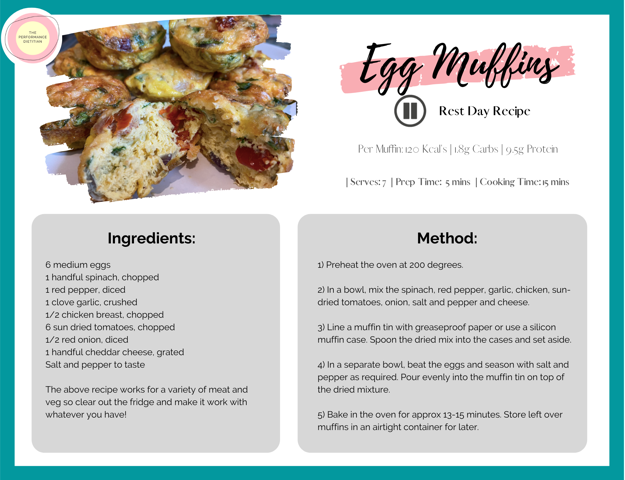WITH club football coming to a close for the season, many of you will now go into your off-season (dependent on inter-county involvement) and have some well-deserved time off.
It has been a hectic few months and an atypical season, so take this time to relax, regroup and recover.
Under the current circumstances, we see a changing landscape on a daily basis and as a result we could very well undergo a longer off-season than anticipated.
With this in mind, it is important we do not lose sight of our fitness and body composition goals when enjoying some down time. Of course, everything in moderation will not hurt anyone. However, eating and drinking certain foods/drinks in excess over a prolonged period of time can in fact lead to unwanted gains in body fat and in some cases can prove detrimental to performance on return to training in the new season. So, what should we consider from a nutritional perspective during off season?
1. Maintenance of lean muscle mass
During off-season it is important we aim to maintain lean muscle mass or, in some cases, players will use this time to undergo hypertrophy-based training to build lean muscle. So, how can diet impact this?
As I have mentioned in a few of my previous articles, the most crucial element of our diet for the repair, maintenance and development of muscle is to ensure we are nailing down the TOTAL, TYPE and TIMING of our dietary protein intake. Therefore, on a daily basis, when aiming to maintain/gain skeletal muscle mass, we should be considering the following:
TOTAL- aim for at least 2g/kg of body weight of protein daily.
TYPE- include a variety of foods rich in essential amino acids such as dairy products, fish, meat and poultry.
TIMING- spread your total daily protein intake across meals and snacks rather than having your protein hit all in one go.
2. Energy in vs energy out
As I have discussed previously, it is important we consider our daily energy expenditure and match our energy intake accordingly. Although dependent on body composition goals, generally speaking, athletes are encouraged to alter their energy intake through their diet in response to their training volume i.e. consume a lower quantity of energy dense foods on days were training load/energy expenditure is reduced. And this remains the aim during off season when training volume tends to be significantly reduced. But why is this? Well, when we are not utilising excess energy intake through exercise, we are likely to see accumulation of body fat over a period of time- something many of us aim to avoid. So, how can we manage our daily energy intake?
Reduce carbohydrate portion sizes at main meals
Consider reducing your portions of energy dense foods such as bread, pasta, potatoes and couscous at main meals, when daily energy expenditure is reduced.
Limit intake of high calorie foods.
Although we all love a cheeky bar of chocolate or takeaway, these foods tend to be calorie dense and will most definitely contribute to body fat accumulation if intake remains consistent when training volume is significantly reduced. In this case, aim to limit these foods in your daily diet over off season and consume in moderation. But remember, it is important to enjoy these foods too when you are pushing the boat out.
Be mindful of alcohol intake.
As many of us enjoy the odd alcoholic drink, keep in mind these drinks are typically calorie dense and can go down very easily (too easily!) without us considering the contribution this will have to our daily energy intake. Keep in mind the more we drink, the more calories we consume- it is as simple as that.
3. Support your immune system
By now we have established that fruit and veggies are sacred! Not only do they provide vitamins and minerals for overall health, but they also are a source of polyphenols and antioxidants which help to reduce oxidative stress in our bodies and contribute to immune regulation. So basically- they support and contribute to fighting infection! Every year, going into the winter months, we are increasingly susceptible to picking up a sniffle or two, so we should do all within our power to maintain our overall health over off-season.
So, fill up your plate with the rainbow, aiming for at least five portions of fruit and veggies per day. Apples, bananas, oranges, broccoli, parsnips, spinach, pineapple, tomato, corn, cauliflower- the choice is up to you!
And remember, during the winter months our Vitamin D uptake is limited (due to our primary source coming from sunlight). But why do we need it? Well, it is a crucial vitamin for our immune function and to optimise bone health, so it is important we meet our bodies Vitamin D requirements. Initially, I would encourage optimising Vitamin D food sources in your diet e.g. oily fish such as salmon, sardines and mackerel, red meat, liver, egg yolks and fortified foods such as Kellogg’s Cocopops and Ricekrispies. However, I would also recommend considering daily/weekly Vitamin D supplementation to ensure you are meeting your daily requirements- consult your GP or Registered Dietitian for further information on this.
And there we have it, a few considerations to get you thinking over your off-season. And to add, why not get into the kitchen with a little more time on your hands? Take a look at the ‘Egg Muffin’ recipe, which is an ideal off-season go-to (high in protein and lower in carbs) to get the ball rolling. And as usual, for more recipes and nutrition related content, follow my Instagram @theperformancedietitian.
Receive quality journalism wherever you are, on any device. Keep up to date from the comfort of your own home with a digital subscription.
Any time | Any place | Anywhere












